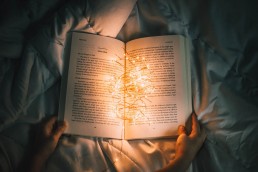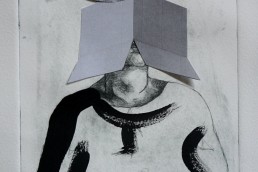By Delilah Kealy-Roberts
Photography Iam Se7en, via Unsplash
Overcoming the odds and struggling through pain seem to have been female traditions within literature. We haven’t had it easy. From Tess of D’Urbervilles and her fellow “fallen women” in Victorian Literature, to Virginia Woolf yearning for a room of her own, to Hermione having to straight up save everyone’s life a few times before Ron and Harry take her seriously, it’s been a tough ride.
Writing about women’s strife is as important today as it ever has been in history, even if the difficulties faced in 2018 are quite different. Furthermore, we must widen our spectrum of experiences and avoid falling into the trap of “white feminism”. Reading Britt Bennet’s The Mothers is a wonderful place to start to make sure your list of Bechdel worthy books is intersectional.
Set in California, The Mothers urgently tackles the issues at the heart of being a young woman in contemporary black America. As we turn each page we follow the coming-of-age story of Nadia Turner. We watch as she makes devastatingly difficult decisions, forms and breaks ties with people around her, and tries to form a life for herself after deciding to have an abortion at the age of seventeen.
As you can imagine, this book forces you face to face with some harrowing topics; controversy over abortion laws, sexual abuse, suicide and toxic masculinity. Bennet approaches these difficult subjects however, with such tact and tenderness that the focus is always on the overcoming — the piecing back together– rather than the horrors faced.
Bennet writes: “Most of the milestones in a woman’s life were accompanied by pain, like her first time having sex or birthing a child. For men, it was all orgasms and champagne.” And we watch as, time after time, the women in this novel suffer through the pain and come out so much stronger. They lean on each other, rather than the men in their lives who seem- on the whole- well-intentioned but ultimately unreliable. This is where the Bechdel element comes into play: the friendships and relationships between women are truly tested in this novel, but it is those very same relationships that always see them through the darker times.
The idea of a female community shines out in this book. It is called The Mothers and sections of the tale are actually narrated collectively by these ambiguous Mothers. The Mothers are first and foremost the older generation of the community church. Mother Betty who bakes the pies, Mother Hattie who loves to gossip etc. You get the picture. They speak as the female voice of the community as they watch the goings on of the younger generations. With Nadia’s own mother deceased and having decided against young motherhood herself, the concept of what it means to be a mother is at the heart of the book. Ultimately, we come to accept the ties of friendship and community as important as that blood-tie that is consistently complex throughout Nadia’s life.
In Japan there is a centuries-old tradition called ‘Kintsugi’. This tradition involved mending broken pieces of pottery with a type of lacquer which is dusted with powdered gold, silver or platinum. The result is beautiful: instead of trying to hide the cracks or discarding the piece all together the pot has been intrinsically repaired and these reparations have made it all the more beautiful. The Mothers consistently made me think of this art; the focus is on the mending, and how a harrowing past can strengthen you rather that make you crumble. While Nadia gazes at the old pier of the small ocean side town, Bennet writes:
“The pier was nothing but a long piece of wood that kept crumbling until it was rebuilt, and years later, she wondered if that was the point, if sometimes the glory was in rebuilding the broken thing, not the result but the process of trying.”
The gold between the cracks, and the relentless overcoming of problems. Women are made ever stronger by their experiences in this novel and Bennet lets us hear their powerful voices.
Some Bechdel Book Club Questions:
- How do you responded to the collective character of The Mothers do you find them caring, or ultimately judgemental?
- Who do you think has a greater impact on the characters’ development, the absent mothers in the novel or the surrogate mothers they find in the church community?
- The novel spans generations of women from completely different circumstances. Is there a particular character you find easiest to relate to?
Delilah Kealy-Roberts
Delilah is a BA English literature graduate and writer based in the North East of England. She specialises in anything dystopian, with a particular interest in gender politics (spoiler alert: gender roles don’t exist in the apocalypse). She has an affinity towards finding cheap flights out of the UK and colossal veggie breakfasts.







